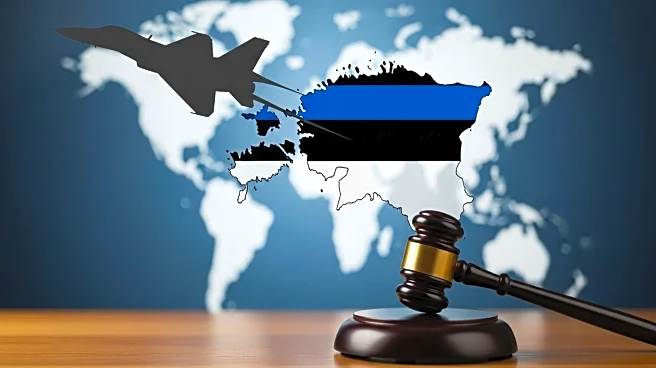What is the story about?
What's Happening?
The United Nations Security Council convened an emergency meeting to address the recent incursion of Russian MiG-31 fighter jets into Estonian airspace. Estonia's Foreign Minister, Margus Tsahkna, condemned the violation as a reckless breach of international law, urging the global community to demand an end to such provocations. The jets entered Estonian airspace over the Gulf of Finland without permission, remaining for 12 minutes before NATO intervention. Estonia has also requested NATO Article 4 consultations, a mechanism for addressing security concerns within the alliance. This incident follows similar airspace violations in Poland, highlighting escalating tensions between NATO and Russia.
Why It's Important?
The incursion underscores the fragile security situation in Eastern Europe, with potential implications for NATO's defense posture. Estonia's call for NATO consultations reflects growing concerns about Russian military activities near alliance borders. The incident could lead to increased military readiness and diplomatic efforts to deter further provocations. NATO's response will be closely watched, as it may influence regional stability and the alliance's commitment to defending member states. The situation also impacts U.S. foreign policy, as the United States, a key NATO member, has pledged to defend alliance territory, potentially affecting its diplomatic and military strategies.
What's Next?
NATO's North Atlantic Council is set to meet to discuss Estonia's request for Article 4 consultations. This meeting could result in heightened military readiness or strategic adjustments within the alliance. The international community will monitor Russia's actions closely, as further incursions could escalate tensions and lead to more robust defensive measures. Diplomatic efforts may intensify to prevent further violations and maintain regional stability. The outcome of these discussions could influence NATO's future security policies and its approach to Russian military activities.
Beyond the Headlines
The incident raises broader questions about international law and the effectiveness of diplomatic mechanisms in addressing security threats. It highlights the challenges of balancing military deterrence with diplomatic engagement in a complex geopolitical landscape. The situation may prompt discussions on the role of international organizations like the UN in mediating conflicts and ensuring compliance with international norms. Additionally, the incident could influence public opinion in NATO countries, affecting political discourse on defense spending and alliance commitments.















